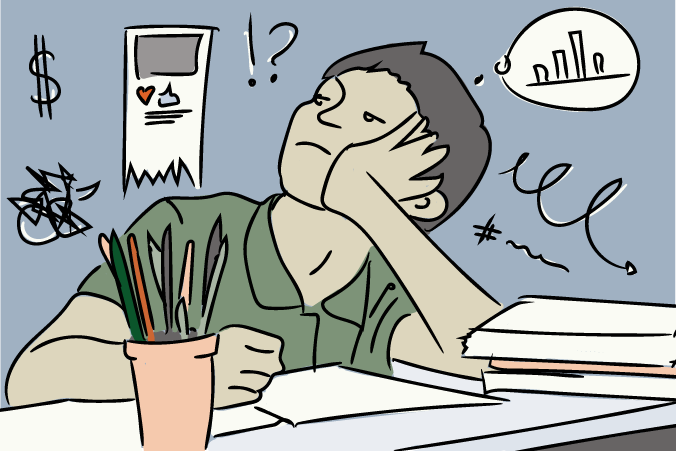DBT for Attention Deficit Hyperactivity Disorder (ADHD)
9.4% of children 17 and younger have been diagnosed with ADHD.
DBT is an effective approach for treating attention deficit hyperactivity disorder (ADHD) and related issues such as emotion regulation.
Is DBT effective for ADHD?
The effectiveness of DBT for Attention Deficit Hyperactivity Disorder (ADHD) is just beginning to become the focus of research studies. The treatment shows great potential in treating the emotion dysregulation and impulse control issues that can be present in those with ADHD. DBT’s focus on Emotion Regulation and Distress Tolerance makes it a good fit to treat an ADHD diagnosis. In addition to Comprehensive DBT, at Guidepost DBT, we also offer Informed DBT which means that your therapist may integrate DBT with other modalities to optimally address ADHD. Such modalities are evidence-based, cognitive-behavioral interventions specifically for the treatment of ADHD.
What is Attention Deficit Hyperactivity Disorder (ADHD)?
ADHD is characterized by a significant and long-term pattern of inattention and/or hyperactivity and impulsivity. Common symptoms can include; trouble holding attention, failing to give close attention to detail, disorganization, forgetfulness, fidgeting, excessive speaking, difficulty waiting. Several of these symptoms must be present before age 12 and in multiple parts of life, such as school, home, and work, for a diagnosis. ADHD can be mild or debilitating and harm your quality of life.
How does DBT support this diagnosis?
People with ADHD can struggle with sitting still, focusing, and impulsive behaviors. DBT can help clients learn to concentrate on the present moment, modify ineffective behaviors, and reduce symptoms of ADHD. DBT support for these symptoms extends beyond the therapy session through phone coaching as a crisis intervention tool in addition to individual weekly psychotherapy and skills groups. DBT provides clients with structure and skills to better balance their attention and behavior; and guidance on how to apply these skills to the unique situations in their lives.
Do You Have ADHD?
Which specific modules are most relevant?
Learn how to manage symptoms of ADHD through the 4 components of DBT: Mindfulness, Distress Tolerance, Emotion Regulation, and Interpersonal Effectiveness.
Mindfulness: Learn how to be truly present.
Mindfulness skills teach you how to be grounded to the present moment, and focus on your current situations. Regular mindfulness practice can help keep you grounded and increase your focus. By being grounded in the present, you are better able to recognize your impulsive behaviors, vacillating emotions, and cope ahead for future stressors.
Emotion Regulation: Learn to manage, change, and accept the different emotions, so that your emotions don’t control you.
Dysregulated emotions and irregular self-care can increase ADHD symptoms. DBT teaches Emotion Regulation skills to stop unwanted emotions from starting in the first place, regulate or change such emotions once they start, and learn to accept and become comfortable with unavoidable emotions. Many of the skills meant to regulate emotions also prioritize balanced sleep, eating, exercise, and prescription medication usage, all of which can help decrease the symptoms of ADHD.
Distress Tolerance: Learn to tolerate painful emotions and situations that seem unbearable, and avoid behavior that can make things worse.
Emotions often seem unbearable or intolerable, which can lead you to make hasty decisions. Distress Tolerance offers tangible skills to use in place of ineffective, impulsive behaviors that can make things worse. These techniques range from guided self-soothing skills, to easy to use methods that activate the parasympathetic nervous system, using your own body’s chemistry to reduce distress. Distress Tolerance skills like Self-Soothe and Wise Mind ACCEPTS can help you tolerate the moment and give you space from the emotion so you can choose more balanced behavior.
Interpersonal Effectiveness: Learn to communicate with others in respectful ways while maintaining healthy boundaries and upholding positive self-respect.
For those struggling with ADHD, ineffective social behaviors can place strain on relationships. DBT guides you in both being a good friend and keeping friends. Interpersonal effectiveness skills provide clear instruction on how to maintain relationships with others, ask for what you want, and uphold your self-respect. Interpersonal Effectiveness skills also provide tools to head off problems and better resolve conflicts before they become overwhelming.
References to research that demonstrate the efficacy of the treatment for the diagnosis
1. This survey of recent research found “support for the effectiveness of Mindfulness, Dialectical Behavior Therapy and Neurofeedback.”
Fullen, T., Jones, S.L., Emerson, L.M. et al. Psychological Treatments in Adult ADHD: A Systematic Review. J Psychopathol Behav Assess 42, 500–518 (2020). https://doi.org/10.1007/s10862-020-09794-8.
2. This study evaluated the feasibility and efficacy of a DBT-based method in a Swedish outpatient psychiatric program. Comparing two groups of adults with ADHD, one doing DBT and one in a loosely-structured discussion group, the study found that the DBT group showed a significant reduction in ADHD symptoms.
Hirvikoski, T., Waaler, E., Alfredsson, J., et al. Reduced ADHD symptoms in adults with ADHD after structured skills training group: Results from a randomized controlled trial. Behaviour Research and Therapy, 49, 175-185 (2011).
https://doi.org/10.1016/j.brat.2011.01.001.
3. This study assessed the efficacy of DBT group skills training in treating college students with ADHD. It found that those who received the group training had a greater decrease in ADHD symptoms.
Fleming, A. P., McMahon, R. J., Moran, L. R., et al. Pilot Randomized Controlled Trial of Dialectical Behavior Therapy Group Skills Training for ADHD Among College Students. Journal of Attention Disorders, 19, 260-271 (2015).
https://doi.org/10.1177%2F1087054714535951.

